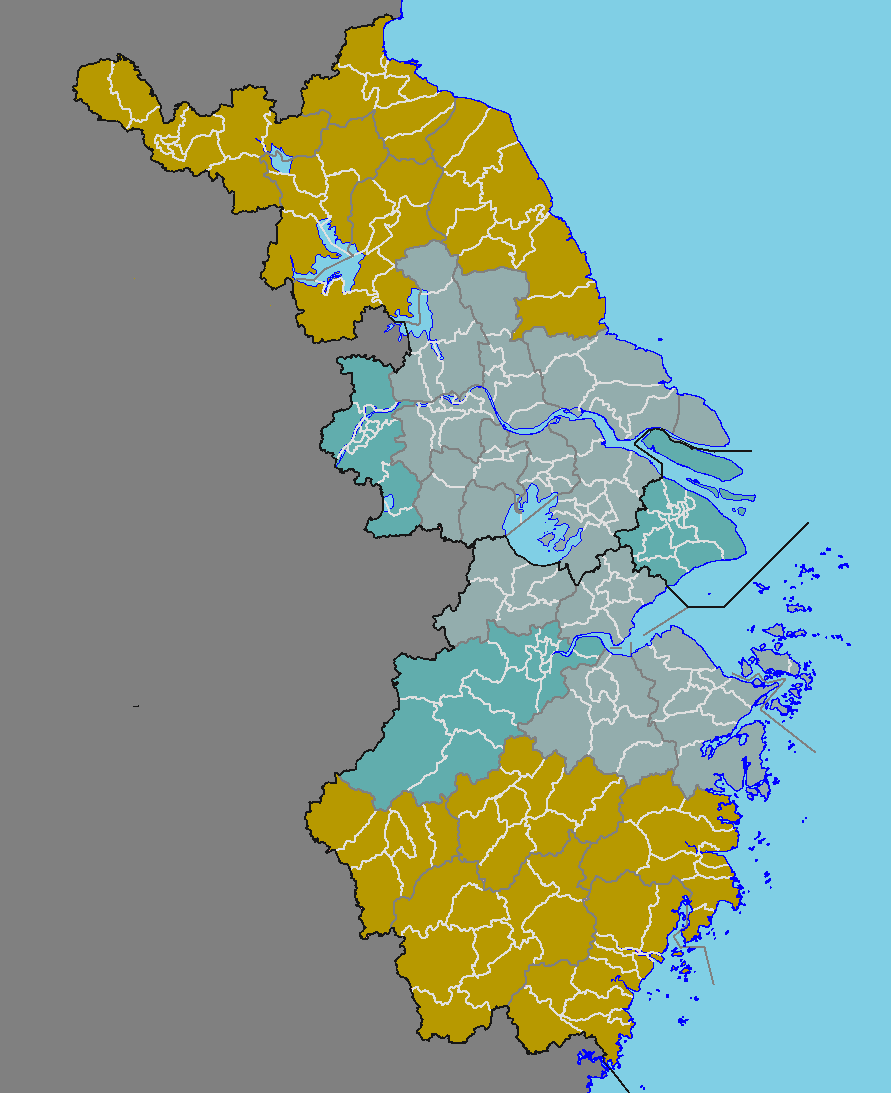|
Gu Shao
Gu Shao ( 188–218), courtesy name Xiaoze, was an official serving under the warlord Sun Quan in the late Eastern Han dynasty of China. Family background Gu Shao's ancestral home was in Wu County, Wu Commandery, which is present-day Suzhou, Jiangsu. He was the eldest son of Gu Yong, who later became the second Imperial Chancellor of the state of Eastern Wu in the Three Kingdoms period. The Gu clan, which he was from, was one of the four most influential clans in Wu Commandery and also in the Jiangdong region at the time. Early life Gu Shao was well read in history and he took a keen interest in moral obligations between people. In his youth, he was as famous as his maternal uncle Lu Ji, and was considered to be of higher calibre as compared to other scions of notable families in Wu Commandery, such as Lu Xun, Zhang Dun (張敦) and Bu Jing (卜靜). Due to his fame and popularity, he attracted many visitors from throughout Wu Commandery and Yang Province who wanted to befri ... [...More Info...] [...Related Items...] OR: [Wikipedia] [Google] [Baidu] |
Emperor Xian Of Han
Emperor Xian of Han (2 April 181 – 21 April 234), personal name Liu Xie (劉協), courtesy name Bohe, was the 14th and last emperor of the Eastern Han dynasty in China. He reigned from 28 September 189 until 11 December 220. Liu Xie was a son of Liu Hong (Emperor Ling) and was a younger half-brother of his predecessor, Liu Bian (Emperor Shao). In 189, at the age of eight, he became emperor after the warlord Dong Zhuo, who had seized control of the Han central government, deposed Emperor Shao and replaced him with Liu Xie. The newly enthroned Liu Xie, historically known as Emperor Xian, was in fact a puppet ruler under Dong Zhuo's control. In 190, when a coalition of regional warlords launched a punitive campaign against Dong Zhuo in the name of freeing Emperor Xian, Dong Zhuo ordered the destruction of the imperial capital, Luoyang, and forcefully relocated the imperial capital along with its residents to Chang'an. After Dong Zhuo's assassination in 192, Emperor Xian fell u ... [...More Info...] [...Related Items...] OR: [Wikipedia] [Google] [Baidu] |
Wu Commandery
Wu Commandery was a commandery of imperial China. It covers parts of the contemporary Northern Zhejiang and Southern Jiangsu. The capital of Wu commandery was Wu (today's Suzhou). Major counties of Wu commandery include Wu (county), Yuhang county, and Huating county which later became known as Suzhou, Hangzhou and Shanghai. History During its existence, Wu commandery was ruled by various dynasties and regimes. Chronologically, Han dynasty, Eastern Wu, Jin dynasty, Liu Song dynasty, Southern Qi dynasty, Liang dynasty, Chen dynasty, Sui dynasty and Tang dynasty governed Wu commandery in sequence. In the year of 129, Wu commandery was established during the reign of emperor Shun of Han. When Kuaiji Commandery was divided, lands west of Qiantang river in Kuaiji commandery formed the new Wu commandery. After the division of Kuaiji, Wu constitutes one of the commanderies of Yang Province. In 195, local strongman of Fuchun county Sun Ce acquired the entire Wu commandery without the ... [...More Info...] [...Related Items...] OR: [Wikipedia] [Google] [Baidu] |
Nanchang
Nanchang (, ; ) is the capital of Jiangxi Province, People's Republic of China. Located in the north-central part of the province and in the hinterland of Poyang Lake Plain, it is bounded on the west by the Jiuling Mountains, and on the east by Poyang Lake. Because of its strategic location connecting the prosperous East and South China, it has become a major railway hub in Southern China in recent decades. As the Nanchang Uprising in 1927 is distinctively recognized by the ruling Communist Party as "firing the first gunshot against the evil Nationalists", the current government has therefore named the city since 1949 "the City of Heroes", "the place where the People's Liberation Army was born", and the most widely known "place where the military banner of the People's Liberation Army was first raised". Nanchang is also a major city, appearing among the top 150 cities in the world by scientific research outputs, as tracked by the Nature Index and home to Nanchang Universit ... [...More Info...] [...Related Items...] OR: [Wikipedia] [Google] [Baidu] |
Yu Fan
Yu Fan (, , ; 164–233), courtesy name Zhongxiang, was a Chinese essayist, politician, and writer of the state of Eastern Wu during the Three Kingdoms period of China. Initially a minor officer under Wang Lang, the Administrator of Kuaiji Commandery, Yu Fan later served under the warlord Sun Ce, who conquered the territories in the Jiangdong (or Wu) region in a series of campaigns from 194 to 199. Sun Ce regarded him highly and once enlisted his help in persuading Hua Xin, another commandery administrator, to surrender. After Sun Ce's death, Yu Fan continued serving under Sun Quan, Sun Ce's younger brother and successor, as a Cavalry Commandant. Sun Quan confined him for some time due to his rude and disrespectful behaviour, but released him in 219 and allowed him to accompany the general Lü Meng to attack Jing Province. During the Jing Province campaign, Yu Fan warned Lü Meng about a possible ambush when Lü Meng was celebrating a minor victory, and was proven right late ... [...More Info...] [...Related Items...] OR: [Wikipedia] [Google] [Baidu] |


